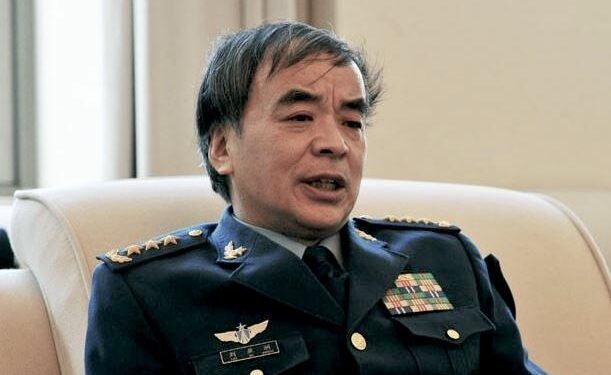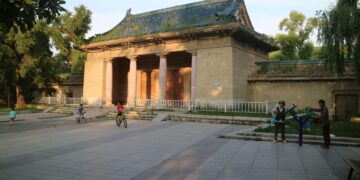Remembering Xu Qiliang: Architect of China’s Military Modernization
Xu Qiliang’s Enduring Influence on the People’s Liberation Army
Xu Qiliang, a distinguished retired general of the Chinese People’s Liberation Army (PLA), has recently passed away after battling an illness, as confirmed by official state media. His death signifies the conclusion of a remarkable chapter in China’s military evolution. Throughout his career, Xu was instrumental in driving sweeping reforms and technological advancements that propelled the PLA toward becoming a formidable global force. Serving as Vice Chairman of China’s Central Military Commission, he was central to crafting defense policies that enhanced operational readiness and strategic agility.
Under Xu’s stewardship, the PLA underwent transformative changes emphasizing integrated joint operations across land, sea, air, space, and cyber domains. He championed modernization efforts that prioritized cutting-edge technology and strategic flexibility to meet emerging security challenges worldwide. Notably, Xu played a critical role in elevating China’s air force capabilities—recognizing air power as vital for national defense amid shifting geopolitical dynamics.
Pioneering Reforms: Bridging Civilian Innovation with Military Strength
Beyond battlefield strategy, Xu advocated for closer collaboration between civilian industries and military development programs—a synergy essential for sustaining innovation within defense sectors. His vision fostered stronger civil-military integration aimed at accelerating research breakthroughs and enhancing logistical support systems.
A firm believer in cultivating talent through rigorous education and training initiatives, Xu invested heavily in preparing future military leaders equipped to navigate complex modern warfare environments. His efforts extended internationally as well; he promoted increased cooperation with foreign militaries to build mutual understanding and stability amid rising regional tensions.
The principles instilled by General Xu continue to resonate within PLA ranks today—his legacy serving as a foundation upon which ongoing reforms are built.
The Strategic Implications Following Xu Qiliang’s Passing
The loss of such an influential figure inevitably prompts questions about how China will steer its military trajectory moving forward. As one of the foremost strategists behind recent modernization drives—including advances in cyber warfare capabilities and naval expansion—Xu’s absence leaves a leadership void during a critical period marked by intensifying great-power competition.
- Continuity vs Change: Will new leaders maintain Xu’s emphasis on high-tech modernization or pivot toward alternative priorities?
- Regional Security Impact: Rival states may perceive shifts within China’s command structure as opportunities to recalibrate their own strategies across Asia-Pacific hotspots like Taiwan Strait or South China Sea.
- Civil-Military Relations: The close ties between Communist Party leadership and military elites forged under Xu could face challenges affecting policy cohesion.
The Chinese government is expected to double down on strengthening asymmetric warfare tactics designed to counterbalance technologically superior adversaries such as the United States. This includes accelerated development programs focused on stealth fighter jets akin to recent advancements seen with platforms like the Shenyang J-31 stealth aircraft prototype unveiled last year.[1]
[1] Source: Defense Technology Review Journal (2024)
Navigating Future Defense Priorities Amid Leadership Transition
Xus’ departure arrives at a pivotal moment when Beijing faces mounting pressure from both external threats and internal demands for reform within its armed forces structure. Analysts anticipate potential shifts including:
- Evolving Command Philosophy: Incoming officials might prioritize naval power projection more aggressively given increasing maritime disputes around Taiwan Island.
- Cybersecurity Emphasis: With cyberattacks growing globally by over 30% annually according to recent UN reports,[2] investment into digital defense mechanisms is likely set for expansion.
- Bilateral & Multilateral Alliances: China may seek deeper engagement with neighboring countries through joint exercises or security dialogues aimed at countering Western influence.
The table below highlights key milestones reflecting evolving leadership focus areas over recent years:
| Year | Leadership Event | Strategic Focus Area | |
|---|---|---|---|
| 2013 | Appointment of Xu Qiliang (Vice Chairman) |
Comprehensive modernization drive (technology & doctrine) |
|
| 2016-2017 | Major structural reforms initiated (command streamlining) |
Joint operations enhancement & integrated command systems | |
| 2019-2020 | Naval fleet expansion accelerated | Maritime dominance & blue-water navy capability | |
| Cyberwarfare units expanded significantly | Digital resilience & offensive cyber tools |
[2] United Nations Cybersecurity Report (2024)
A Lasting Legacy Amidst Uncertain Horizons
The passing of General Xu Qiliang represents not only an end but also an inflection point for China’s armed forces during this era defined by rapid technological change and geopolitical complexity. His visionary approach helped transform the PLA into an increasingly capable institution prepared for multifaceted threats ranging from conventional conflicts to hybrid warfare scenarios.
As state media continues limited disclosures regarding his illness or succession plans within top military echelons,a watchful eye remains fixed globally on how Beijing recalibrates its defense posture without one of its most influential strategists at the helm.
This moment invites reflection on how enduring principles established under his guidance will shape future doctrines—and whether emerging leaders can sustain momentum amid intensifying international scrutiny.
Ultimately, General Xu Qiliang’s contributions endure beyond his lifetime—as pillars supporting China’s quest toward securing national sovereignty while navigating complex global realities.















